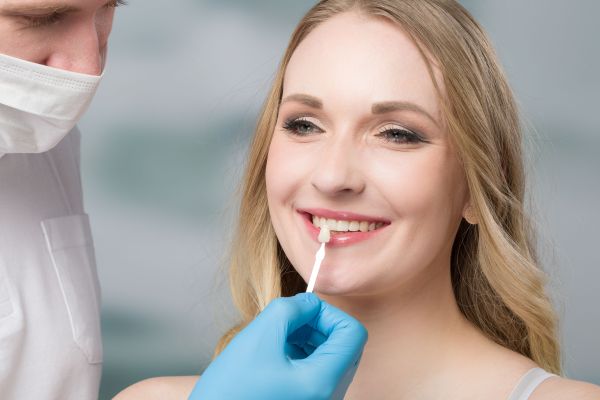Dental Veneer Options

Thanks to tremendous advances, you have more options for dental veneers than ever before. Cosmetic dentistry as a whole has completely changed over the years. That means for a broad range of tooth and gum problems, you have incredible solutions. Yes, veneers improve smiles, but they also correct a host of issues.
What are dental veneers?
A great way to describe dental veneers is as a layer of material a dentist places over the surface of a tooth. Typically, these go on the front teeth as a way of improving aesthetics. However, this type of cosmetic dentistry accomplishes a lot more. For the most part, a laboratory makes veneers out of either porcelain or composite material. While both work great, each is different. Of the two, porcelain veneers look the most natural.
Types of dental veneers
Many people have no idea that dental veneers come in different types. When consulting with a dentist about this cosmetic dentistry procedure, they will provide information on all of them. However, the dental professional will recommend the most favorable choice based on each patient’s needs. Beyond the materials and even brands, a laboratory can make specific types of dental veneers.
Pressed ceramic
From a manufacturing standpoint, pressed dental veneers are the easiest to make. Also, compared to the other types, these are thicker. As a result, the veneers are somewhat stronger and more durable. However, as a dense option, a dentist must do more alterations to produce the overall structure of the tooth.
Stacked ceramic
For this cosmetic dentistry procedure, some people prefer the stacked ceramic option. These dental veneers, custom-made by hand, look and feel amazing. For someone who wants to dramatically improve their smile, this is a great way to go. Since a skilled ceramist performs the work, it is easy for them to match a person’s natural tooth color, translucency and shape.
Lithium disilicate
For someone who grinds their teeth at night, this particular material comes highly recommended. These dental veneers provide strength. For a dental lab to make them, they use either CAD or CAM technology. That gives the finished product incredible precision.
Zirconia-based
While similar to the lithium disilicate option, these dental veneers are even stronger. For that reason, these are a great choice for structurally weakened teeth. Since a lab makes these veneers using the same material as crowns, breaking them is difficult to do. The one drawback of both ceramic and porcelain veneers is these can chip and crack. These, on the other hand, are almost indestructible. Along with improved aesthetics, zirconia-based veneers work great at hiding surface imperfections.
Minimal-prep
For cosmetic dentistry, there is yet another type of dental veneers. Based on the extent of a patient’s concerns, these might be an option. As this type is much thinner compared to traditional veneers, a dentist does not need to remove as much tooth enamel. For individuals who prefer taking a conservative approach to cosmetic dentistry, minimal-prep make a good choice.
Making the right decision
With the help of a dentist who performs cosmetic dentistry procedures, you will end up with the right dental veneers. With so many types and top-of-the-line brands, you will be on your way to having the smile you always wanted.
Request an appointment here: https://www.yourdowntownmckinneydentist.com or call Sam Patel DDS, PA at (972) 638-5848 for an appointment in our McKinney office.
Check out what others are saying about our services on Yelp: Read our Yelp reviews.
Related Posts
Everyone learns oral hygiene basics when they are young, but some details get lost over time. For example, many adults are confused about what type of toothbrush to use. This simple tool comes in many different forms, including a variety of sizes and a range of bristle textures. You may wonder why there are so…
An emergency dentist is essential for treating dental injuries, including a knocked-out tooth. Whether resulting from a sports injury, accident, or fall, a lost tooth requires immediate attention to improve the chances of successful re-implantation. Timely care from a skilled emergency dental professional further increases the likelihood of preserving the tooth and reducing the risk…
An emergency dentist provides urgent care for individuals experiencing sudden dental issues that require immediate attention. Understanding what qualifies as a dental emergency can help patients determine when to seek professional help. While some dental problems may seem urgent, others can be addressed with routine care. Whether due to a sudden injury, severe pain, or…
While some fear around dental procedures is natural, dental anxiety can prevent even the most basic routine dental visits and cleanings. Fortunately, sedation dentistry provides a calming solution that allows you to feel relaxed and comfortable during dental treatment. By addressing fear and stress in the dental chair, dentists who use sedation techniques can help…
